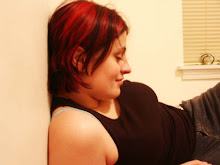Dear Garnet,
I've been wondering for a little while about how one becomes a sex educator. What sort of degrees or certifications do you need? Are there any particular schools that are great for studying sex ed?
Currently I'm a biology major finishing my general education classes at a community college before I transfer to a university. I'm involved in VOX, a Planned Parenthood advocacy group on my campus right now. I really love what I do for this group and I think it would be awesome if I could make it into a career.
It is incredibly difficult for me to answer this question for two reasons. First, there are many different types of sex educators who have differing backgrounds in educational as well as life experience and who teach to varying types of people. Some of these careers require high degrees and some of them don't require any degrees. Some of them are positions you may find with a company or a school and others are entrepreneurial in nature and therefore are whatever you make of them.
Second, and the reason that this question actually made me chuckle, is that I'm trying to figure this one out for myself. I am an aspiring sex educator. I think I'm starting to reach my goals on sex education, but I'm really still trying to figure out what type of sex educator I want to be and how to become that type. Like you, I work for Vox at my school. I also write this blog, review sex toys for a couple different woman-run sex toy shops, work at a woman-run sex toy shop where my title is sex educator, and have done some escorting work for Planned Parenthood.
So really what you have to do is figure out what kind of sex educator you want to be. If you want to work with Planned Parenthood I highly suggest talking to someone at Planned Parenthood about what types of jobs they offer and what is required to fill those jobs. You can also get some of that information on their website here.
For this type of job as well as others in the sex education field, possible topics of study in college can include, but are not limited to medicine, public health, education, anatomy, gender and women's studies, psychology, history, and language (being bilingual can really help with a lot of positions especially in non-profit). Based on this wide possibility of studies its difficult to make a recommendation as far as a particular school to go to. Look around and do your homework before deciding what school you want to attend. The only thing I can recommend would be to look for a pretty liberal school if you want to receive an education that takes diversity into account.
I will be getting my bachelors degree in May from a state university which is pretty average in its undergrad program although it has been rated as one of the top 100 colleges for GLBT students and is a very diverse campus in general. I feel that my gender and women's studies classes have especially helped me to understand a lot of issues involving sexuality, gender, and the intersectionality of different identities. For grad school I plan on attending The Institute for the Advanced Study of Human Sexuality which specializes in sex education and sex therapy. It is my choice to go there to further my education in the sex education field. Some sex educators never even went to college.
So this is really all up to you. There is no real established path to becoming a sex educator. I do recommend that you find well established sex educators who are involved in the kind of sex education that you want to do and write to them. Ask them what paths they took, why they decided to become a sex educator, and ask if they'd be willing to mentor you a little.
Friday, February 22, 2008
How To Be a Sex Educator
Labels:
advice,
sex education
Subscribe to:
Post Comments (Atom)















No comments:
Post a Comment